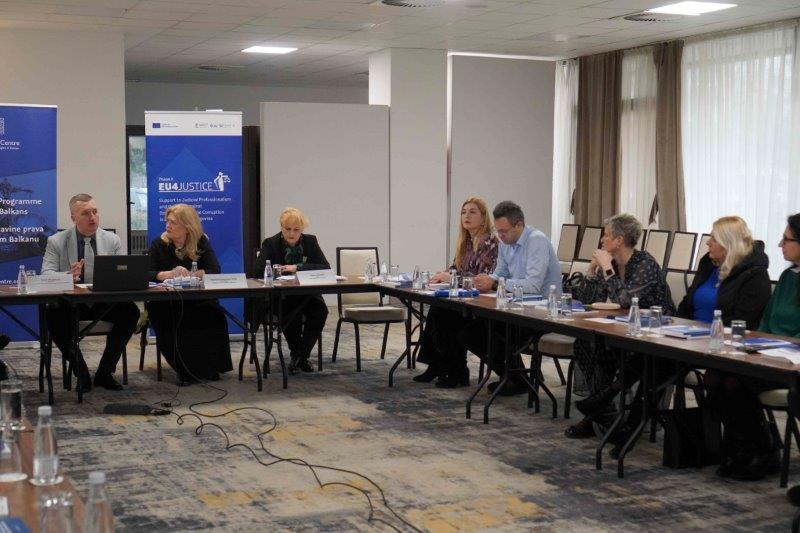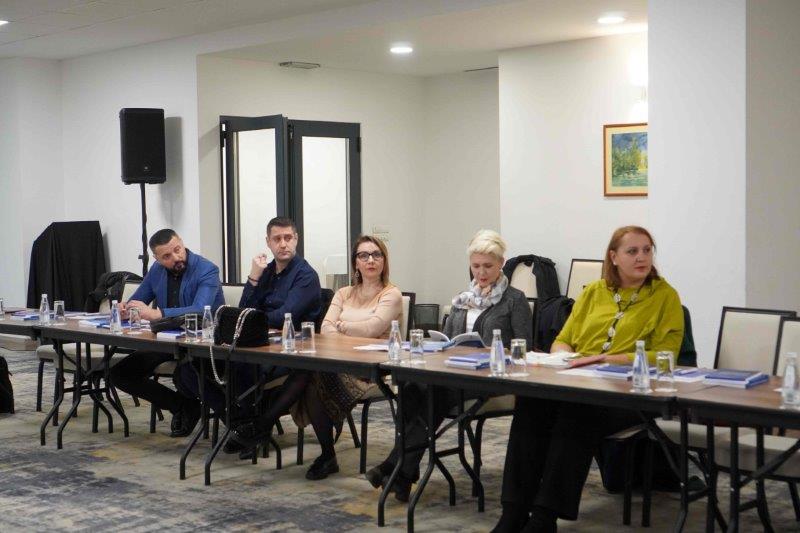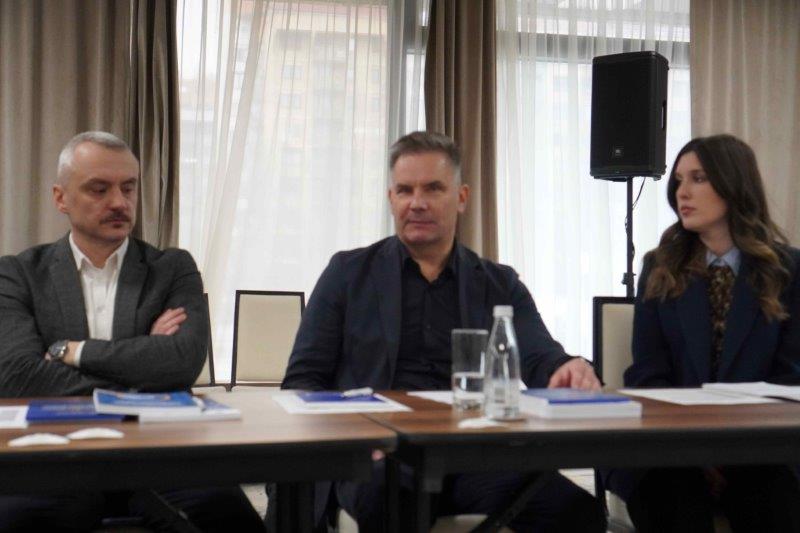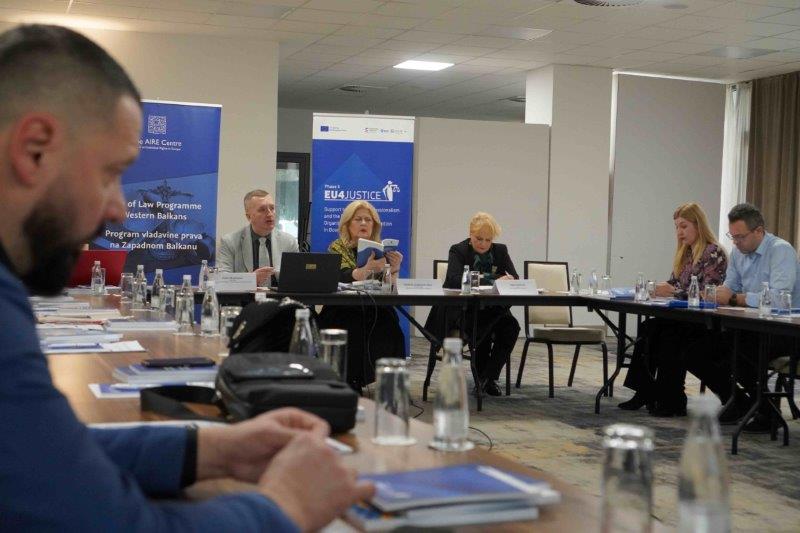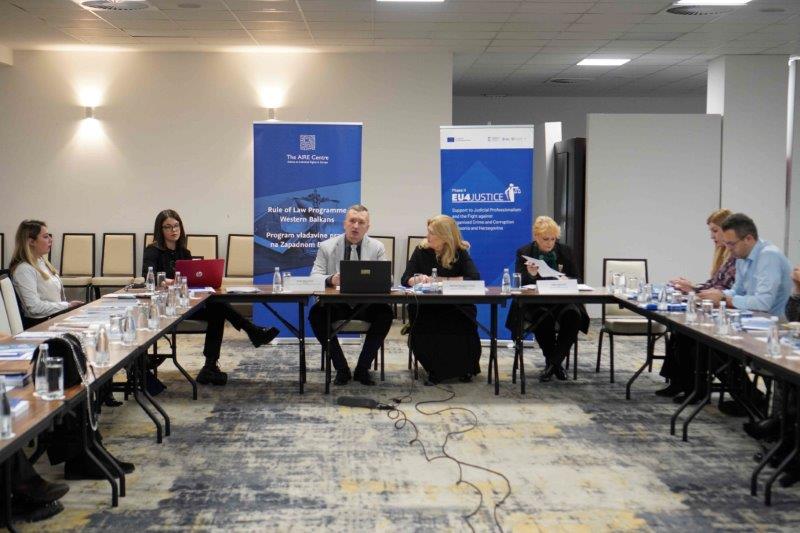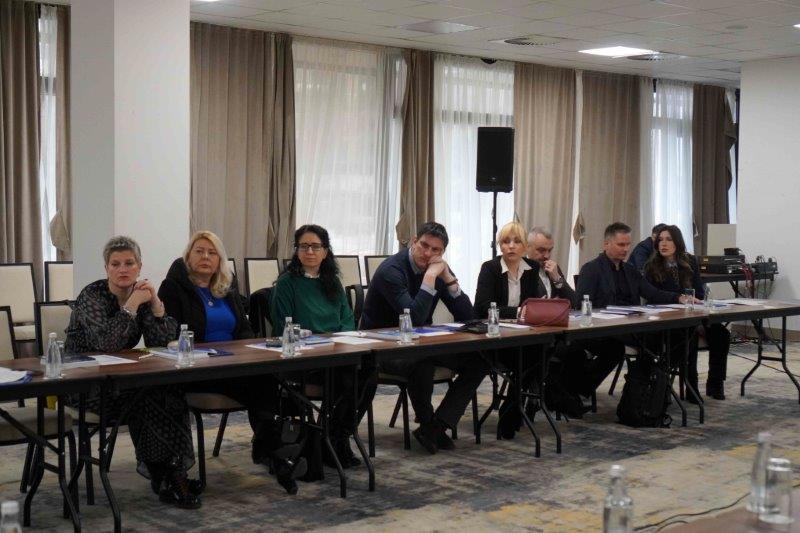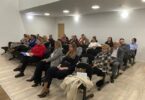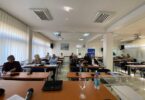Illegally acquired wealth from organised crime not only funds further illegal activities but also undermines the integrity of justice systems and the rule of law. To address these challenges, judges and legal experts from across the region came together in Sarajevo to explore effective methods for confiscating criminal assets. Organised by the AIRE Centre and EU4Justice, this workshop represents a vital step toward strengthening judicial capacities and promoting regional cooperation.
Martina Raguž, Project Manager at the AIRE Centre, opened the event by emphasising the critical role of asset recovery in dismantling criminal networks.
“Confiscating illegally obtained assets remains one of the most effective tools in combating organised crime. However, inconsistent practices and a lack of expertise continue to challenge its implementation. This workshop offers judges an opportunity to explore good practices and discuss collaborative approaches for tackling these crimes”, explained Raguž.
Mika Aalto,Leader of the Support the coordination and cooperation within the criminal justice chain in tackling organised crime and corruption Component within EU4Justice project, dunded by the EU, highlighted the importance of financial investigations in strengthening judicial efforts.
“In light of European Union integration processes and MONEYVAL requirements, Bosnia and Herzegovina must develop a systematic mechanism for financial investigations alongside criminal investigations. These efforts are vital for identifying and proving beneficial ownership of criminal proceeds, ultimately strengthening judicial capacities and aligning with European standards”, said Aalto.
The workshop delved into key topics, including confiscation practices in money laundering cases, evidentiary standards, and the impact of European Union directives on domestic judicial frameworks. Judges shared insights on tracing illegal assets, proving ownership, and addressing challenges in confiscating proceeds of crime.
Tatjana Kosović, judge of the Court of Bosnia and Herzegovina, provided an overview of domestic practices in money laundering cases.
“There is a clear trend towards aligning legal frameworks to strengthen the fight against money laundering and its links to the financing of terrorism. We fully support the adoption of international standards in addressing these issues, as well as the exchange of information and experiences. We especially appreciate that, after a long wait, the Law on the Prevention of Money Laundering and Financing of Terrorist Activities was passed at the state level in Bosnia and Herzegovina in February 2024. This marks a significant and positive step forward in tackling these challenges”, said judge Kosović.
Radmila Dragičević-Dičić, former judge of the Supreme Court of Cassation in Belgrade, shared perspectives on Serbia’s approach to regular and extended confiscation. Dragičević-Dičić explained that itis necessary to identify problems that arise in the procedures for confiscating property derived from criminal offenses, as well as in those related to so-called extended confiscation of property, through the case law developed so far.
“While respecting both our laws and international conventions in this area, it is essential for judges to understand that, particularly in cases of extended confiscation of property, the burden of proving the legal origin of the property must be shifted to the accused. The court’s role is to assess the evidence presented by the accused”, said judge Dragičević-Dičić.
“Problems arise with uncertified contracts, loans of large sums of money, unregistered property, and other transactions that may be fictitious, all aimed at avoiding the determination that the property originates from criminal activities. There is also the criminal offense of money laundering, where, through an efficient criminal procedure, property can be confiscated as an object of the commission of this offense”, she added.
Participants engaged in practical exercises led by Eldan Mujanović, Professor at the Faculty of Criminology, Criminology, and Security Studies. These interactive sessions enabled judges to apply theoretical concepts to real-world scenarios, focusing on best practices and strategies for overcoming legal and procedural hurdles in asset recovery.
“The diverse expertise shared during this workshop underscores the complexities of asset recovery. By addressing legal challenges and practical hurdles, we’ve opened a path for more coordinated and efficient efforts in seizing criminal assets, ultimately strengthening the rule of law in Bosnia and Herzegovina and beyond”, said Mujanović.
This workshop is a result of cooperation between the AIRE Centre and EU4Justice in BiH aimed at strengthening effective prosecution of organised crime and corruption, in line with European standards and the EU acquis.
